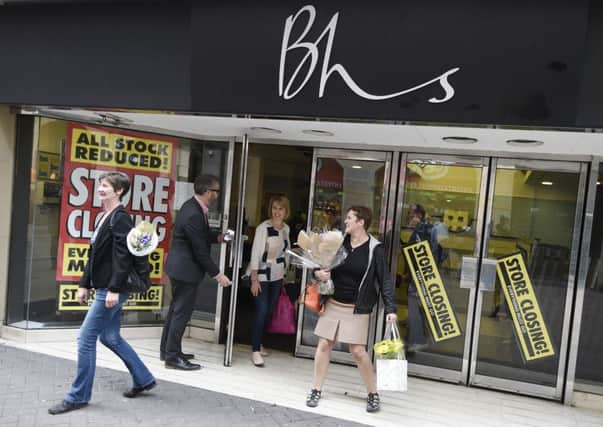Edward Gratwick: '˜Keep-open' clauses crucial for retail
This article contains affiliate links. We may earn a small commission on items purchased through this article, but that does not affect our editorial judgement.


The Scottish Retail Consortium estimates one-quarter of businesses across Scotland could shut between now and 2025. As the big names pull out or fail, smaller independent retailers already juggling other running costs must contend with a further decline in footfall caused by the disappearance of those household names, creating the “ghost town” effect.
Advertisement
Hide AdAdvertisement
Hide AdWhile reduced business rates and government support through city-region deals aim to support those in distress, waves of closures continue.
Lurking in the shadows for many landlords is the prospect of re-letting vacant units – an administrative headache at best and a financial sinkhole at worst.
As challenges continue for the retail sector, landlords must consider their options to protect investments, and where possible avoid unnecessary closures by key tenants.
We’re increasingly asked to advise on enforcement of “keep-open” clauses in commercial leases, used to ensure a retailer continues trading from particular premises, even if it is unprofitable to do so.
• READ MORE: Jobs at risk as Debenhams plans warehouse closures
The clauses protect landlords from the negative impact associated with empty units. They are most valuable in long-term leases to anchor tenants (often supermarkets) where the tenant considers close of premises for commercial reasons. Keeping anchor tenants in place can preserve vital footfall through a centre. Enforcing a keep-open clause can be effective where dealing with retail chains. However, conflict and associated costs can be avoided through effective communication.
Advertisement
Hide AdAdvertisement
Hide AdAn open dialogue helps forewarn landlords their tenant is in distress, allowing them to avoid the shutters coming down early.
Compromises by way of rent reductions and mitigation of service charge liability can be cost-effective for landlords if it prevents closure.
Enforcing keep-open clauses is costly and if a tenant goes into liquidation or administration, ultimately unsuccessful.
As the battle for the high street wages on, there will be more closures and further job losses as shutters close in our towns. Enforcement of keep-open clauses is a tool often available to landlords and can be important in dealing with a want-away tenant.
Landlords and tenants depend on each other. Collaborative arbitration between landlord and tenant could go a long way to avoiding the courtroom and may even help avoid unnecessary closures. It all starts with a conversation.
• Edward Gratwick is a managing associate and solicitor advocate in the dispute resolution team at Addleshaw Goddard